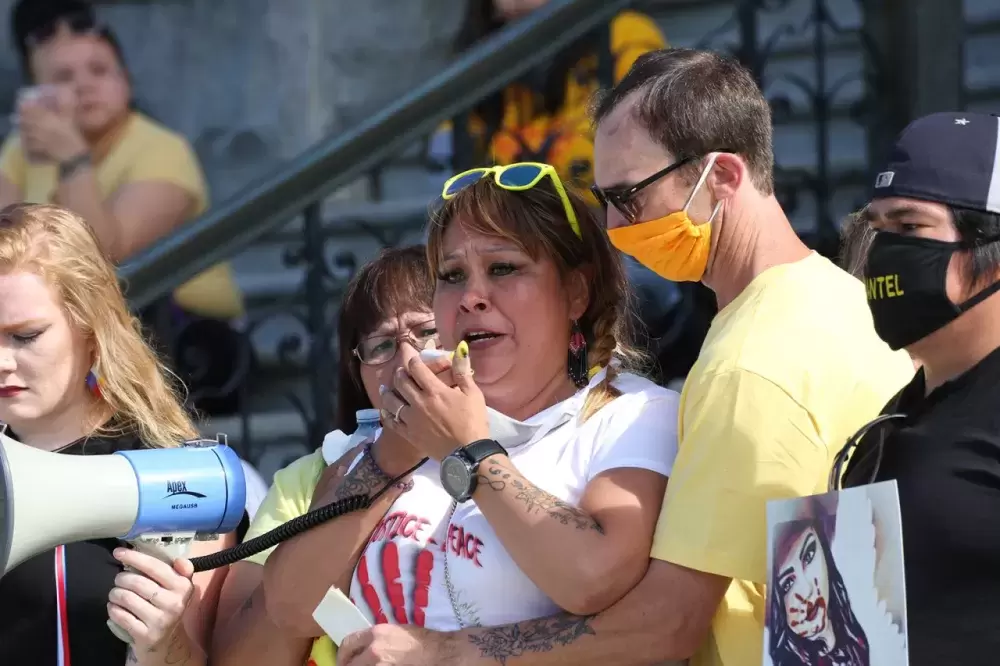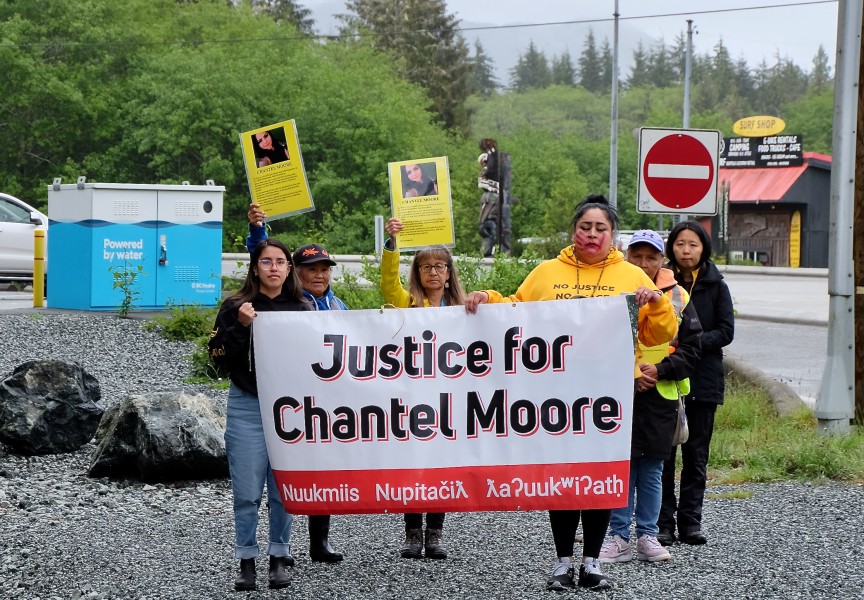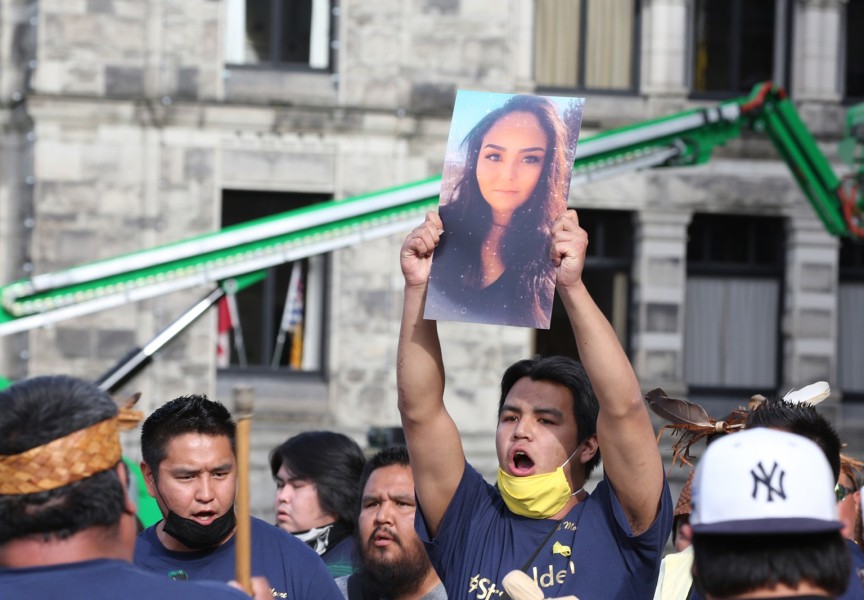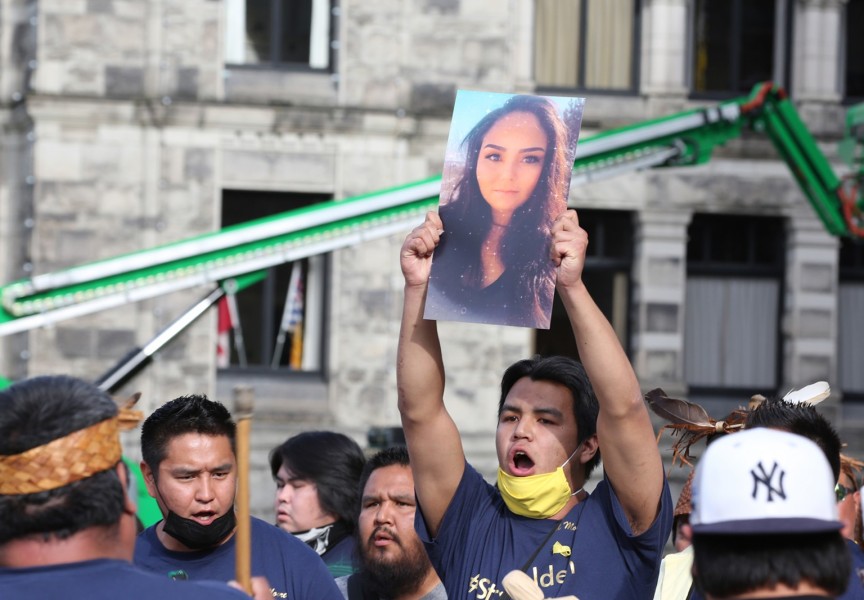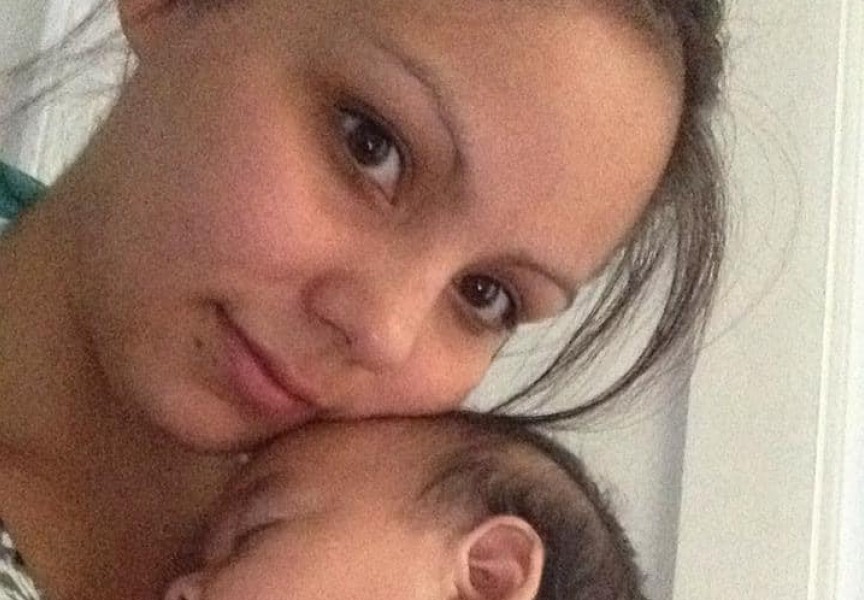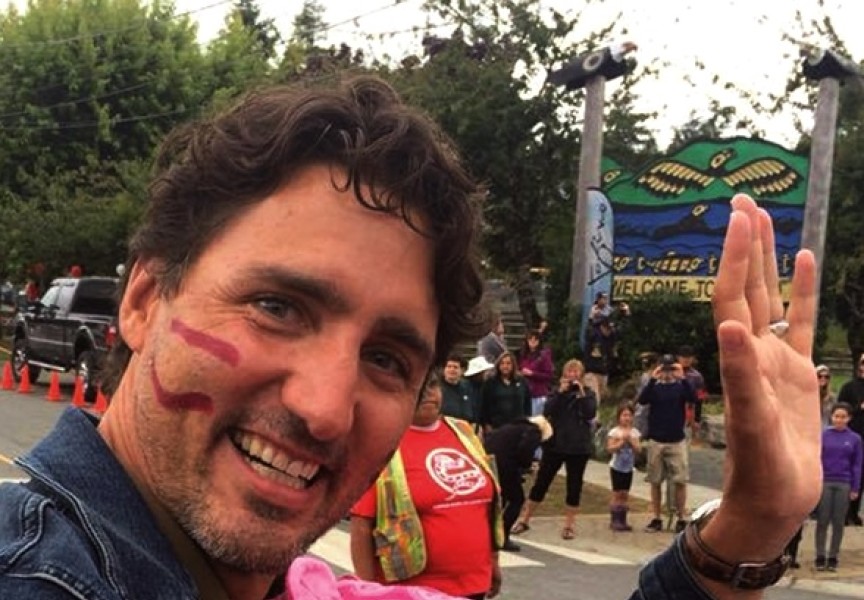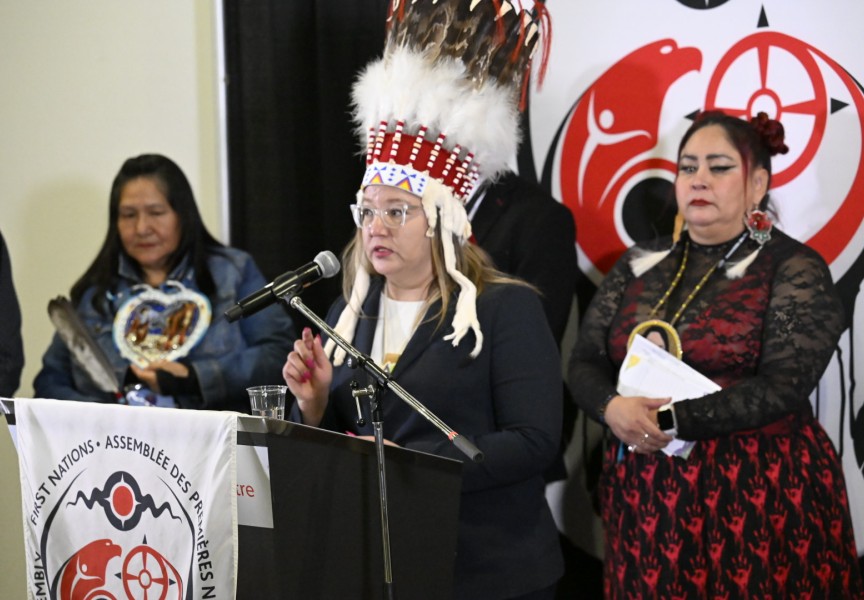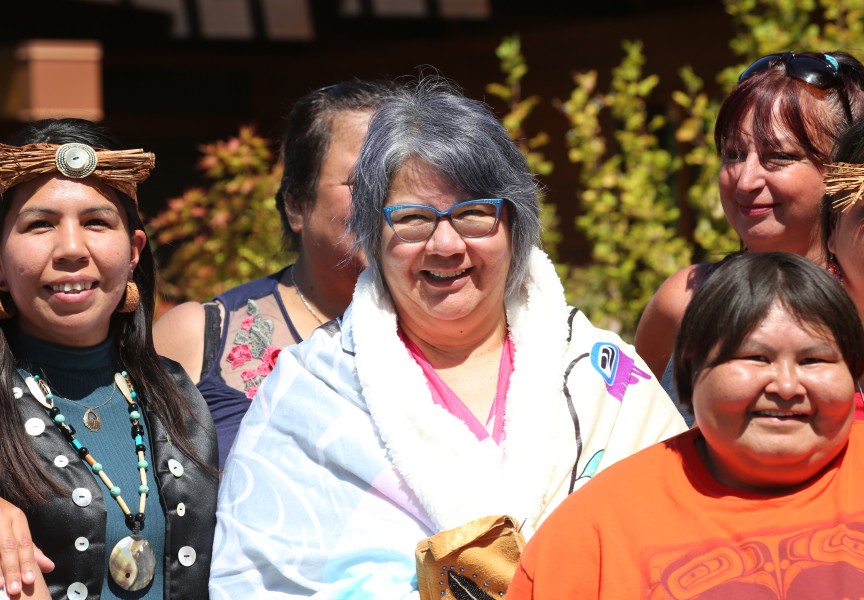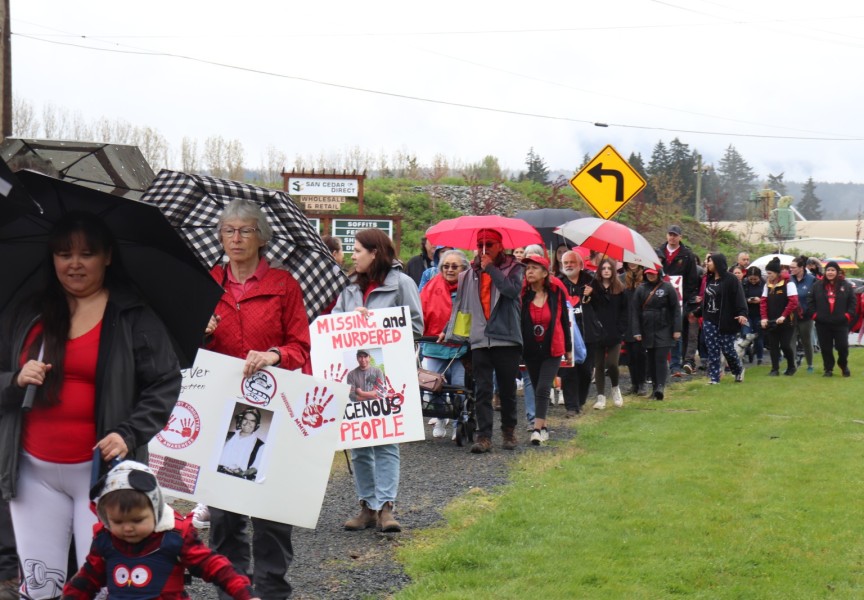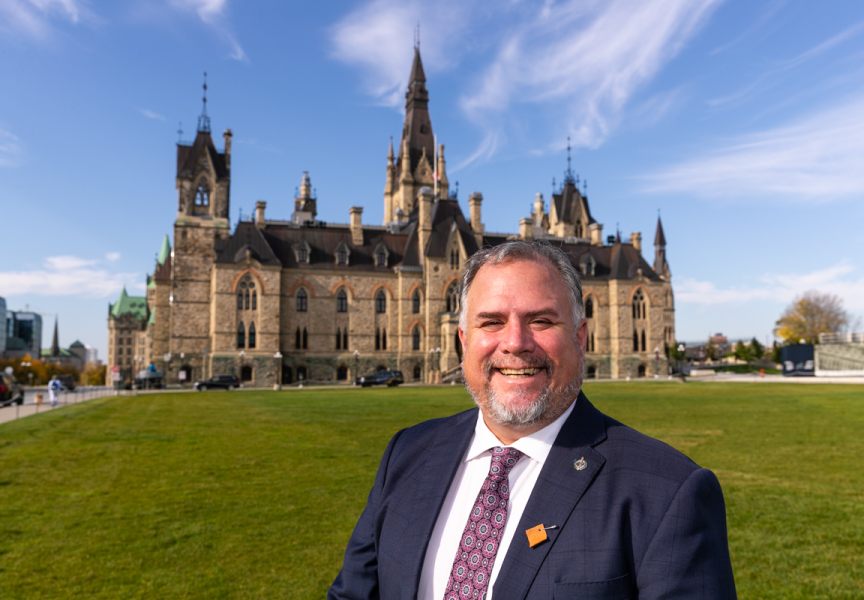Amid fears that the existing process won’t uncover answers, the family of Chantel Moore has sent two complaints to the New Brunswick Police Commission.
Under the direction of the family, the submissions were made by law firm T.J. Burke, citing stipulations under New Brunswick’s Police Act that were broken when the 26-year-old was shot by an officer on June 4. Moore, a member of the Tla-o-qui-aht First Nation, was killed by a Edmunston Police Force officer after he was called to check on her safety in the early morning hours. The municipal police force has stated that the officer was defending himself when Moore approached him with a knife.
The officer fired five times, and the complaint alleges the improper use of a firearm, misuse of authority and abuse to Moore that contravenes the policeman’s responsibility to the public under New Brunswick’s legislation. Weeks after the tragedy, the officer was back on the job, assigned to administrative duties with the Edmunston Police Force. The complaint calls for the officers dismissal.
A coroner’s inquest into the circumstances of the death is forthcoming, and the Bureau des enquêtes indépendantes, an independent police watchdog that investigates incidents in Quebec and New Brunswick, is investigating. The BEI can make recommendations to the provincial Crown prosecutors to lay charges, but this action has not been taken since the agency began investigating fatal shootings by police in 2016. Over the last four years 26 investigations into fatal shootings have been launched, six of which are ongoing, while one is being considered by Crown prosecutors and 19 others are closed, resulting in no charges.
“Before BEI’s creation those incidents were investigated by police forces themselves (i.e. provincial police force mandated to investigate municipal police forces and vice versa),” stated the agency’s communications in an e-mail to Ha-Shilth-Sa.
But half of the BEI’s investigators are former police officers, leading Moore’s mother, Martha Martin, to doubt that the process will lead to a justified result.
“How do you expect to have confidence in this BEI that has never laid charges on anybody?” she asked. “When there’s no transparency and everything seems to be hidden, where do you gain trust in them?”
The agency’s website states that, “Impartiality is central to our work, because all are equal before the law.”
Reports to the provincial Crown prosecutor, or Directeur des poursuites criminelles et pénales (DPCP), are not publicly released.
“These reports, and any additional reports required by the DPCP, are not made public because they contain sensitive information, including names, statements from witnesses and the people involved, and evidence,” stated the BEI.
“They need to be more transparent with people,” said Martin. “They uncover what they want and release what they want. I think it’s really unfair to families that are grieving and are waiting for answers.”
Another complaint from T.J. Burke to the New Brunswick Police Commission addresses the conduct of Edmunston Police Insp. Steve Robinson during a television interview with CTV news after the tragedy. A reporter asked Robinson if more that one shot was fired at Moore.
“I can’t comment right now on that,” said Robinson while laughing.
The municipal police force issued a statement explaining that Robinson’s mother tongue is French.
"I understand that my reaction on camera caused frustration and concern,” said Robinson in the statement. “I sincerely apologize if it was interpreted or perceived as recklessness or lack of compassion. This is absolutely not the case.”
This apology was rejected by Moore’s family.
The circumstances of Moore’s death have raised questions across Canada, leading Indigenous Services Minister Marc Miller to openly question how someone can end up being shot dead by a police officer during a wellness check. During a trip to Vancouver Island on Aug. 15 Canada’s NDP Leader Jagmeet Singh and Mid-Island MP Gord Johns met with Moore’s family, part of the gathering pressure from political leaders for the investigative process to produce answers.
“Part of pursuing justice for Chantel Moore means that two police officers’ conduct in this case must be scrutinized by an independent body,” said Judith Sayers, president of the Nuu-chah-nulth Tribal Council, in a press release, “they must be held accountable for what they did and to face the consequences for their actions.”
On average, BEI reports are produced eight months after an investigation is launched.
“There’s some of stuff that I can’t talk about right now because it’s still an open investigation and I have to be careful of what is being said,” said Martin.

